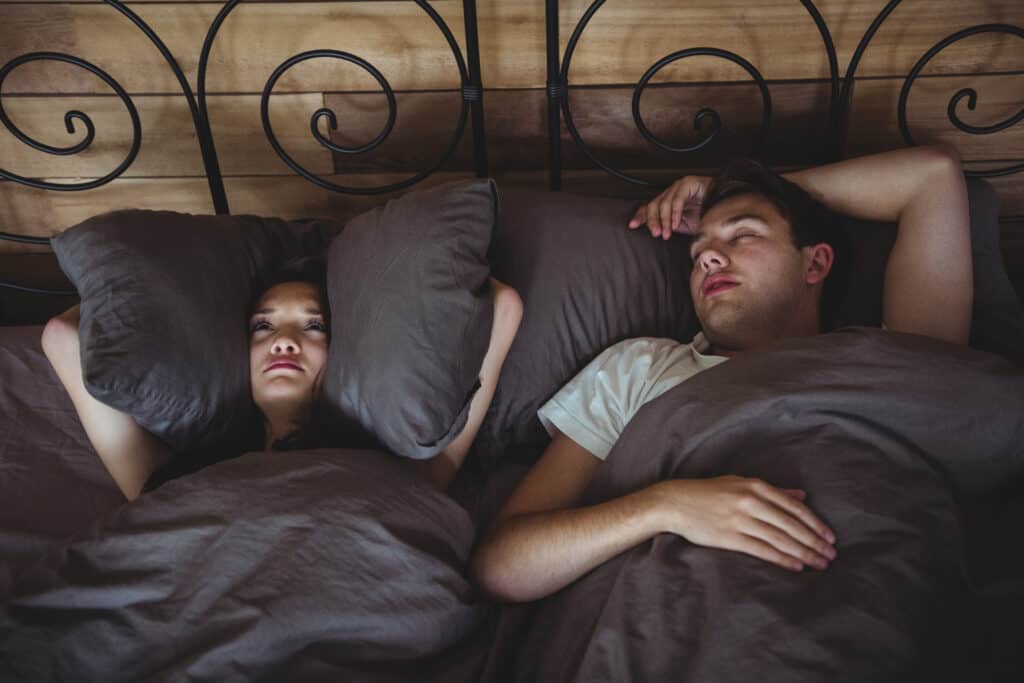When you end up not getting quality sleep during the night, you typically feel “off” throughout the next day. Not only can your mood and energy level be low, your workout usually suffers too. This seems to happen when you’re clocking less than 6 hours of sleep a night on a consistent basis. In addition to that, you may also notice, you crave unhealthy foods following a sub-optimal amount of sleep the previous night.
What’s the Definition of Good, Quality Sleep
Sleep quality, as opposed to sleep quantity, refers to how well you sleep. It also includes falling asleep within 30-minutes or less, and sleeping through the night without having the need to get up. The one final piece you could add to the mix is when you’re awaken, for whatever reason, you’re able to fall back to sleep within 20-minutes.
The most valuable assets you have are your mind and body and they require a certain amount of sleep each night to function optimally. With that said, more than 60 percent of the population does not sleep well throughout the night. Research shows people getting less than six hours of sleep have higher blood levels of inflammatory proteins than those who sleep more than six hours. This is important because inflammation is linked to diabetes, stroke, heart disease, arthritis, and premature aging. This data was published in the Centers for Disease and Control and Morbidity and Mortality Report.
Association Between Quality Sleep and Exercise
You work hard in the gym and try to eat healthy to give yourself the best chance for success. The last thing you want to do is ruin those odds by getting minimal sleep. Research from University of Chicago and University of Wisconsin show people who slept more carried less body fat. Subjects who monitored caloric intake and averaged 5.5 hours of sleep, had more body fat compared to subjects consistently getting 8.5 hours of sleep.
Finally, the Wisconsin Sleep Cohort Study looked at more than 1,000 subjects regarding their sleep patterns. They found those who slept less than 8 hours a night had an increase in BMI proportional to decreased sleep.
What is the Recommended Amount of Sleep?
National Sleep Foundation’s recommends 7-9 hours of uninterrupted, quality sleep for adults (ages 18-64). For older adults (age 65+), they suggest 7-8 hours of sleep a night. These recommendations were updated in 2015 and published in Sleep Health: The Official Journal of the National Sleep Foundation.
Final Thoughts on Sleep
One final comment on the importance of sleep that’s explained nicely in the book, Biological Rhythms and Exercise. “Weight-training exercises may be unaffected by partial sleep loss early on in a training session, but the performance suffers due to lack of drive and concentration as the (exercise) session continues.”
We are currently living in unprecedented times during these past few years, and stress has affected all of us in one way or another. Stress is a natural physical and mental reaction to how we’re living our life. Use both regular exercise and aim for quality sleep each night to help reduce the amount of stress in your life. Stay strong with Jefit app.
Stay Strong Together
Jefit, named best strength app by Sports Illustrated, Esquire, GQ, Men’s Health, Greatest, Forbes Health, and many others. It offers a community responsible for 92,000,000 workouts to date! The app, which recently passed 10 million downloads, comes equipped with a customizable workout planner and training log. The app has ability to track data, offer audio coaching cues, and can share workouts with friends. Visit our members-only Facebook group. Connect with like-minded people, share tips, and advice to help get closer to reaching your fitness goals.
- Maximum Activation: Bear Crawl, Plank, & Dead Bug - April 2, 2025
- Boost Your Posterior Strength with 3 Effective Jefit Exercises - March 31, 2025
- 8 Underrated Stretches to Improve Your Deadlift Performance - March 28, 2025
